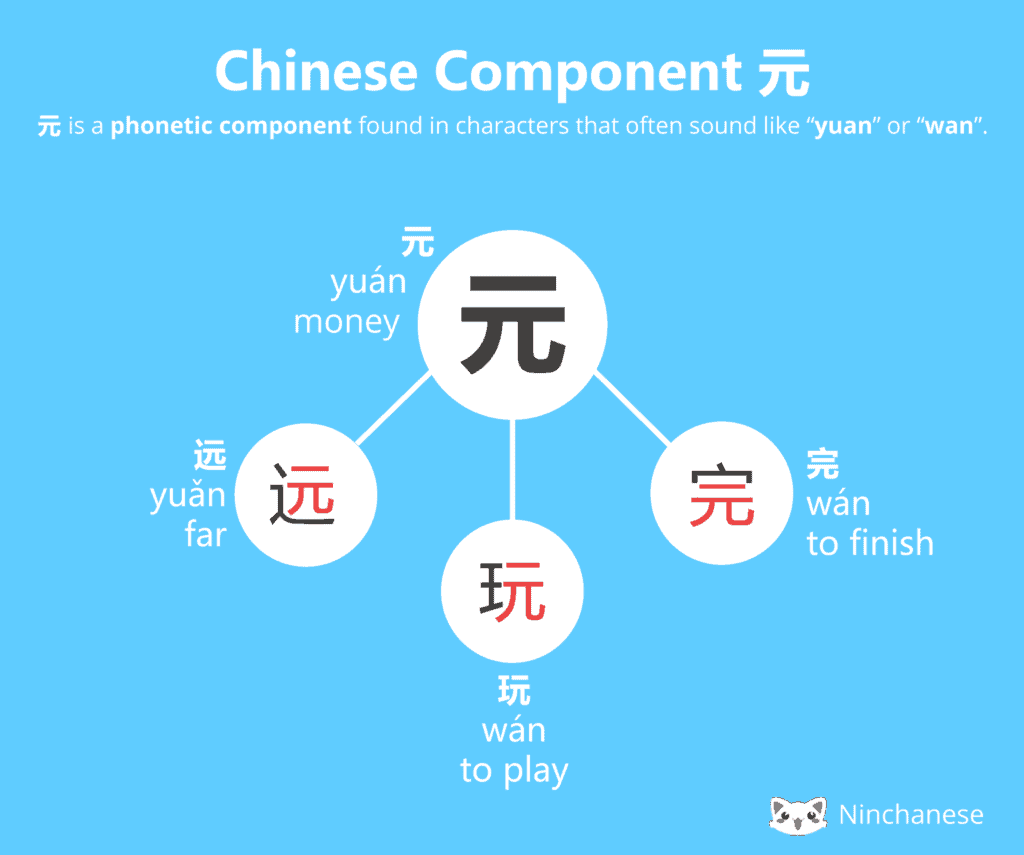The Chinese character 元
And its component form
元
yuán
- money
- unit of currency
- unit of money
- yuan
元 is both a character and a character component

元, the Chinese character for money, can also be found in Chinese characters as a component. When used as a component, 元 brings its pronunciation to the character it’s in, making it a phonetic component. You’ll find often the Chinese character component 元 in characters and words that are pronounced “yuán”, which is exactly the same as how you say “money” in Chinese. Characters that contain 元 are also pronounced “yuan”, but with a different tone.
These characters all contain 元 and sound like “yuán” or “yuan”:
When used as a character component, 元 can also be found in words that sound close to “yuan”.
The Chinese language is over 5000 years old, so, unsurprisingly, some characters’ pronunciations have evolved over time.
It’s the case with 元, which you’ll also find in characters that are pronounced differently than “yuan”.
Chinese characters containing 元 as a component can sometimes have a pronunciation close to the sound 元 but not quite the same. You’ll often see 元 in characters that are pronounced “wan”, for instance. Characters containing 元 will also sometimes use the final “-uan” or “-an” but with a different consonant.
Exceptions
You’ll often find the character component 元 in characters pronounced “wan”, such as:
玩 wán: to play; to have fun
完 wán: to finish; complete
抏 wán: to consume; to exhaust
Find more characters that contain the phonetic component 元. Browse the full list here.
Lastly, you can find the character component 元 in words pronounced “guan” or “ruan”. There are only two such exceptions , the following words:
冠 guān: hat; crown; crest; cap
朊 ruǎn: protein
All 80,000+ Chinese characters share the same character components. Chinese character components are therefore essential for Chinese learners: they are the building blocks of Chinese. Character character components help tremendously with understanding a character: they provide information on its meaning or on its pronunciation. In short, knowing character components will help you analyse, learn and remember each Chinese character much better.
Join us on Ninchanese as we teach you everything about the Chinese character components you need to know, little by little.
